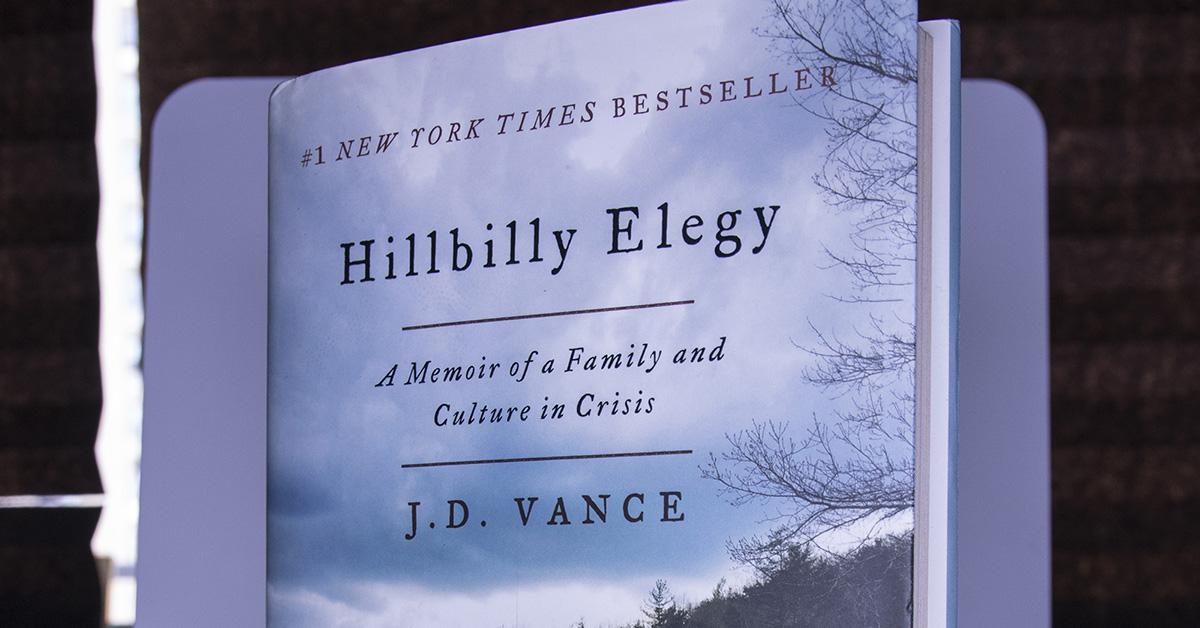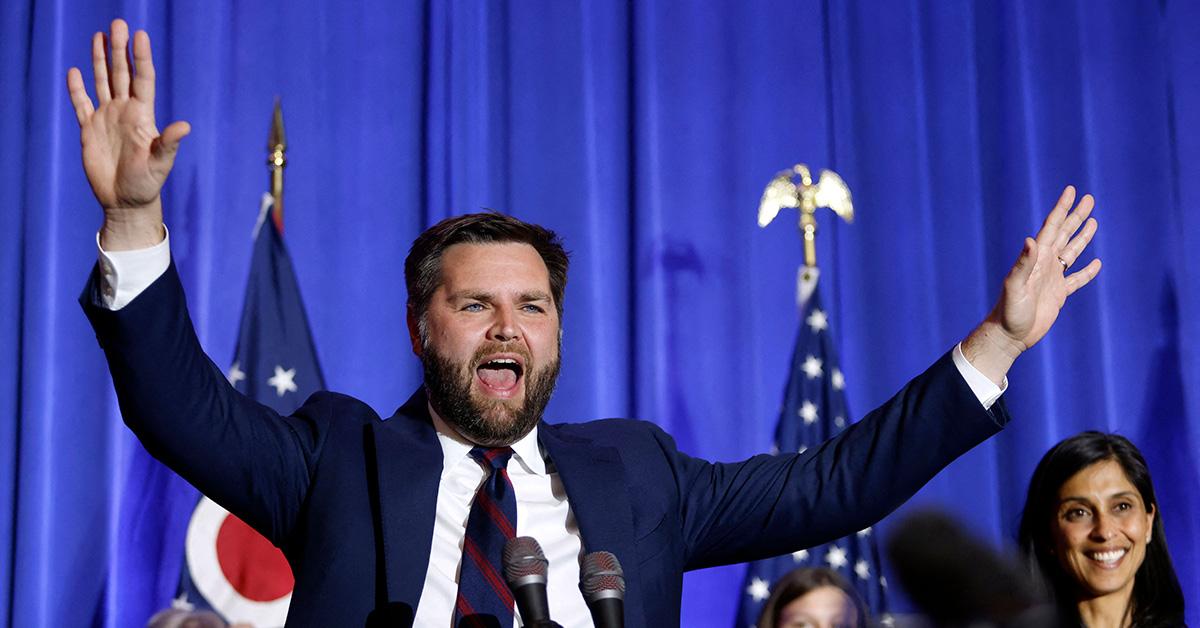J.D. Vance's 'Hillbilly Elegy' Is Controversial for All Kinds of Reasons
Critics say that 'Hillbilly Elegy' leans into stereotypes about Appalachian people.
Published July 16 2024, 11:38 a.m. ET

Following months of speculation, Donald Trump announced on July 15 that he would be nominating J.D. Vance as his vice president for the 2024 election. The news of Vance's selection was not all that surprising, but it did lead to renewed scrutiny of the 39-year-old first-term senator from Ohio.
J.D. Vance sprang to prominence thanks in large part to his memoir, Hillbilly Elegy, which tells the story of his time growing up in Ohio. Now that he's been nominated for vice president, many want to know more about why the book was so popular and so controversial at the same time.

Why was 'Hillbilly Elegy' so controversial?
J.D.'s memoir is billed as “the true story of what a social, regional, and class decline feels like when you were born with it hung around your neck.”
The novel became a national bestseller and was adapted into a movie of the same name, but many critics, including people who hailed from the same Appalachian as Vance, questioned the memoir across a host of fronts.
The criticism often suggested that Vance relies heavily on stereotypes in his book and that he blames the poor people of Appalachia for the troubles that befall them, including his own mother.
“We spend our way to the poorhouse,” Vance writes in the book. “We buy giant TVs and iPads. Our children wear nice clothes thanks to high-interest credit cards and payday loans."
"We purchase homes we don’t need, refinance them for more spending money, and declare bankruptcy, often leaving them full of garbage in our wake," he continues. "Thrift is inimical to our being.”
The book became such a phenomenon in part because it was released just after Donald Trump's election in 2016 and seemed to be a gateway into understanding many of the voters that propelled him into office.
Silas House, an Applachian author who discussed the book with Politico in 2020, said that he looks at the book as “not a memoir but a treatise that traffics in ugly stereotypes and tropes, less a way to explain the political rise of Trump than the actual start of the political rise of Vance. I think that if it had just been a memoir, it would be a powerful piece of writing, and it would be his own proof."
"But the problem is, it is woven through with dog whistles about class and race, gender," he continued. "And if your ears are attuned to those dog whistles, you know exactly what he’s saying. If you’re not, then it can read like a heartwarming rags-to-riches story.”
Of course, the book did propel Vance's rise to prominence, and even though he came out as a vocal critic of Trump in the aftermath of his election, he eventually turned course so quickly that he is now the man's vice presidential nominee and heir apparent. Given the apparent flexibility of his beliefs, it seems clear that Vance was, at least to some extent, happy to see how far Hillbilly Elegy could take him.